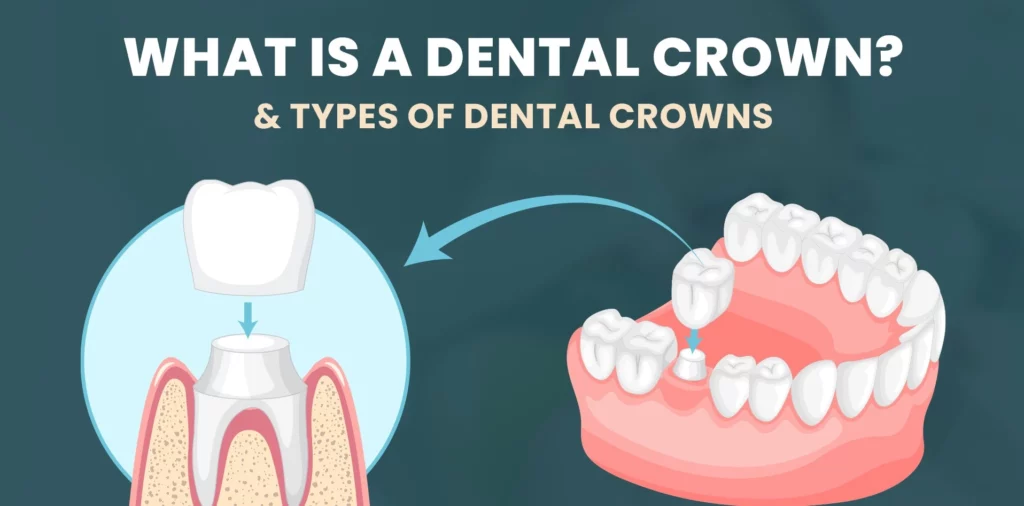Dental crowns are a popular restorative dental treatment used to restore damaged, weakened, or severely decayed teeth. They act as a protective cap, covering the entire visible portion of the tooth above the gum line, improving both aesthetics and functionality.
Several types of dental crowns are available, each offering unique advantages and suitability for various dental conditions. Understanding the differences between these crown types can help you and your dentist choose the best option for your specific needs.
In this article, we would be looking at the different types of dental crowns from Klinika Dental Clinic, Al Barsha, Dubai and how to know the one that suits you the most. Let’s delve in.
Types of Dental Crowns
The different types of dental crowns include:
Zirconia Crowns
Zirconia crowns are a type of all-ceramic crown known for their exceptional strength and durability.
They are milled from a single block of zirconia, making them resistant to fractures and suitable for posterior teeth.
Zirconia crowns are an excellent choice for you if you need highly durable restorations, particularly for back teeth. These crowns can also be color-matched to blend seamlessly with the patient’s natural teeth.
Porcelain-Fused-to-Metal (PFM) Crowns
Porcelain-Fused-to-Metal (PFM) crowns combine the strength of metal with the natural appearance of porcelain. They have a metal substructure for strength and are layered with porcelain on the visible side to match the adjacent teeth’s color and texture.
PFM crowns offer a balance between aesthetics and durability, making them a versatile option for both front and back teeth.
Porcelain-Fused-to-Metal crowns are suitable for you if you require restoration in both front and back teeth, and want a blend of strength and natural aesthetics.
Porcelain Crowns
Porcelain crowns are known for their natural appearance and can be color-matched to blend seamlessly with your existing teeth.
These crowns are a popular choice for front teeth and can effectively restore a natural, attractive smile. However, they may not be as strong as other types and could be prone to chipping or cracking if subjected to excessive force.
Porcelain crowns are an excellent option for patients seeking an aesthetically pleasing solution for their damaged or discolored teeth. They are a good choice for you if your front teeth require restoration or cosmetic enhancement.
Metal Crowns
Metal crowns, often made from alloys containing gold, platinum, or base metals like cobalt-chromium, are extremely durable and can withstand biting and chewing forces well.
The key advantage of metal crowns is their strength and longevity, making them a suitable option for molars or teeth that undergo significant pressure during chewing. However, their metallic appearance might not be ideal for visible front teeth.
Metal crowns are beneficial and more suitable for you if you want to restore your molars and back teeth that require the most robust support.
All-Ceramic Crowns
All-ceramic crowns are made entirely from dental ceramics, providing an aesthetically pleasing, metal-free solution.
They are highly biocompatible and exhibit excellent aesthetics due to their ability to mimic the appearance of natural teeth closely.
All-ceramic crowns are suitable for patients with metal allergies or those seeking the most natural-looking restoration.
If you’re someone who wants metal-free dental crown options for both front and back teeth, all ceramic crowns may be the best for you.
Choosing Dental Crowns: Why You Should Seek Professional Help
Choosing dental crowns is an important decision that requires careful consideration and professional guidance.
While dental crowns can effectively restore damaged or decayed teeth and improve oral health, selecting the right type of crown for your specific needs can be challenging without the expertise of a dental professional.
There are various types of dental crowns available, each with unique advantages and applications. A dental professional such as the ones at Klinika Dental Clinic, Al Barsha, Dubai, will consider your individual needs, preferences, and budget to recommend the most suitable crown type for your specific case.
Their expertise ensures that you receive a crown that not only fits your dental requirements but also complements your smile and facial aesthetics.
Also, professional dental care does not end once the crown is placed. Regular check-ups and cleanings are essential to monitor the crown’s condition, as well as your overall oral health.
A professional can identify any issues early on and provide appropriate interventions to maintain the crown’s integrity and prevent potential complications.
Seeking professional help will ultimately lead to a successful and satisfying dental crown experience.
Conclusion
Choosing the right dental crown type depends on various factors, including the tooth’s location, the extent of damage, aesthetic preferences, and budget considerations.
At Klinika Dental Clinic, Al Barsha, Dubai, we have dental professionals who are experts and knowledgeable and can help you through the dental crown process.
Whether it’s restoring the appearance of front teeth or providing maximum strength for molars, our dentists offer dental crowns that provide versatile solutions for patients of all ages, including children with primary tooth issues.
Remember, dental professionals are best at evaluating your dental condition and guiding you toward the most suitable crown option.


0 comments on “What Are the Different Types of Dental Crowns and Which One Suits My Condition Best?”